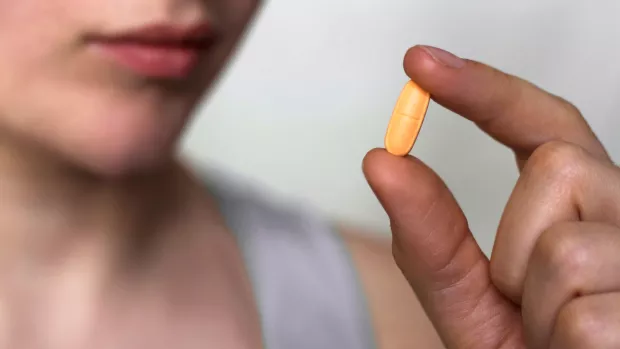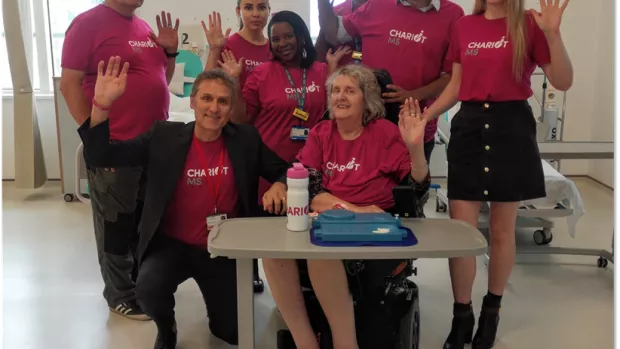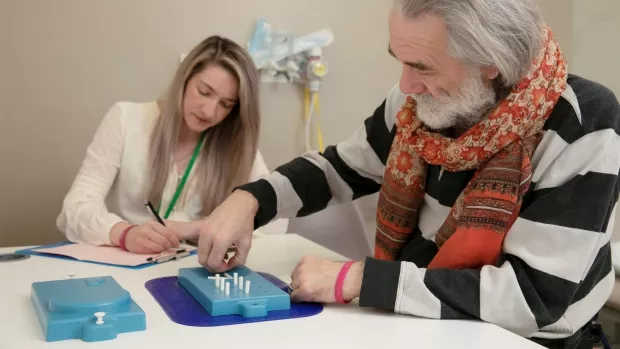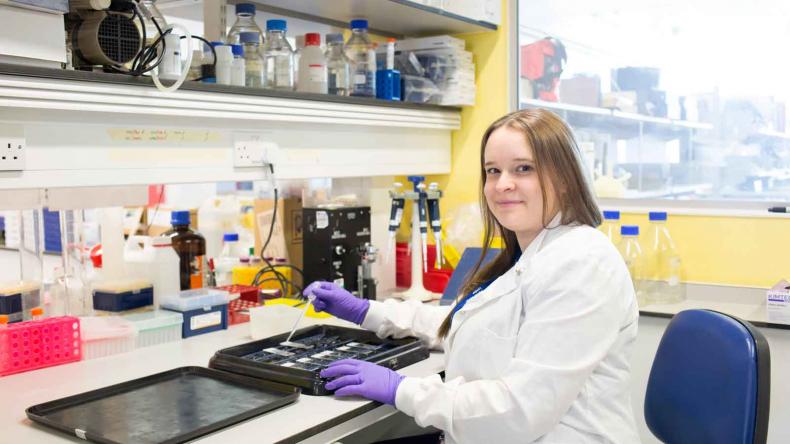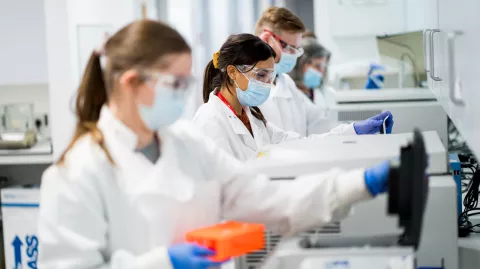
Phase 3 trials show evobrutinib is no better than existing treatments for people with relapsing MS
Pharmaceutical company Merck announced the results of the EVOLUTION (evolutionRMS1 and evolutionRMS2) clinical trials earlier this month. They found evobrutinib wasn’t more effective at reducing relapses than existing drug teriflunomide.
What did the trial investigate?
The two identical phase 3 trials compared evobrutinib with an existing treatment called teriflunomide (Aubagio). Researchers wanted to know whether evobrutinib is better at reducing relapses than the existing treatment. The trial recruited people with relapsing remitting MS and people with secondary progressive MS who experience relapses.
Evobrutinib is one of a new class of drugs in development for MS called Bruton’s tyrosine kinase (BTK) inhibitors. There are currently four different BTK inhibitors in phase 3 trials for MS.
What did they find?
An analysis of the results of both trials showed that evobrutinib was comparable to, but not better than, existing drug teriflunomide in its ability to reduce relapses.
The trials are designed to look at other important MS outcomes so Merck will continue following participants until 2026.
What does this mean for people with MS?
The results of this trial show that BTK inhibitor evobrutinib is no better than existing treatment teriflunomide at reducing relapses.
We understand this will be disappointing news for people with MS. However, there are other ongoing trials of BTK inhibitors. There is some evidence to suggest that they might slow progression independent of relapses.
The full results of the trial will now be analysed and published. These results, alongside the results of other trials for BTK inhibitors, will allow us to build up a full picture of whether BTK inhibitors could be an effective treatment for people with MS.
Dr Clare Walton, our Joint Head of Research, said:
“Over the past few years there’s been a lot of excitement within the MS community about BTK inhibitors as a potential new class of MS drugs. But this trial of evobrutinib has disappointingly shown no improvement on relapse rate compared to an existing MS drug. MS can be debilitating, exhausting and unpredictable, and these results remind us how challenging it is to find new treatments.
"Once all the data from the trial is collected and analysed, we will be able to see if evobrutinib had any impact on disability progression unrelated to relapses. This is one of the major unmet needs for people living with MS, and currently no treatments are available."

